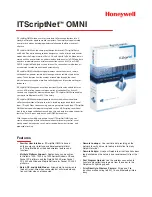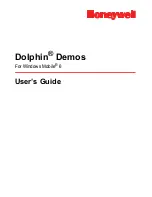
Looks up the first login time for the specified username.
The username attribute is looked up automatically from the RADIUS Access-Request (User-Name attribute).
GetUserSessions()
GetUserSessions($username, $from_time, $to_time = null)
Calculate the number of sessions for accounting records matching a specific user-name. The username attribute is
looked up automatically from the RADIUS Access-Request (User-Name attribute).
See
"GetTraffic() " on page 274
for details on how to specify the time interval.
GetUserTime()
GetUserTime($username, $from_time, $to_time = null)
Calculate sum of session times in a specified time interval.
See
"GetTraffic() " on page 274
for details on how to specify the time interval.
GetUserTraffic()
GetUserTraffic($username, $from_time, $to_time = null, $in_out = null)
Calculate sum of traffic counters in a time interval. Sessions are summed if they have the same User-Name attribute
as that specified in the RADIUS Access-Request.
See
"GetCallingStationTraffic() " on page 271
for details on how to specify the time interval.
Advanced Developer Reference
The reference documentation in this section is intended for advanced usage by developers.
nwa_assign
{nwa_assign …}
Smarty registered template function. Assigns a page variable based on the output of a generator function.
Simple usage example:
{nwa_assign var=my_variable value=my_value}
l
The “var” parameter specifies the page variable that will receive the output.
l
The “value” parameter specifies the value to assign to “var”.
The various request variables may also be accessed using one of two supported methods:
l
{nwa_assign var=_GET.get_variable value=...}
l
{nwa_assign var=smarty.get.get_variable value=...}
The variables that can be accessed this way are _GET (smarty.get), _POST (smarty.post), _REQUEST
(smarty.request), _SESSION (smarty.session), _COOKIE (smarty.cookies), and _ENV (smarty.env).
Assigning to values in _SESSION will persist the value for the next page load in the session.
Alternative usage example:
{nwa_assign var=userskin_plugin generator=NwaGetPluginDetails arg=$u.userskin}
l
The “generator” parameter specifies the generator function to be called.
l
A single “arg” parameter, if specified, provides a 1-argument form of calling the function; alternatively, “arg1”,
“arg2”, ... may be specified to form an array of arguments to pass to the generator.
nwa_bling
{nwa_bling …}
Dell Networking W-ClearPass Guest 6.0 | Deployment Guide
GetUserSessions() | 275
Summary of Contents for Networking W-ClearPass Guest 6.0
Page 1: ...Dell Networking W ClearPass Guest 6 0 Deployment Guide ...
Page 12: ...12 DellNetworking W ClearPass Guest 6 0 Deployment Guide ...
Page 26: ...26 Use of Cookies DellNetworking W ClearPass Guest 6 0 Deployment Guide ...
Page 64: ...64 About SMS Guest Account Receipts DellNetworking W ClearPass Guest 6 0 Deployment Guide ...
Page 218: ...218 Viewing the Hotspot User Interface DellNetworking W ClearPass Guest 6 0 Deployment Guide ...
Page 260: ...260 Automatic Logout DellNetworking W ClearPass Guest 6 0 Deployment Guide ...
Page 310: ...310 Glossary DellNetworking W ClearPass Guest 6 0 Deployment Guide ...
Page 320: ...320 Index DellNetworking W ClearPass Guest 6 0 Deployment Guide ...
















































